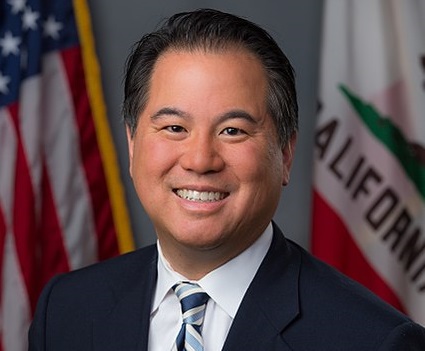Gov. Gavin Newsom, D-Calif., has signed into law financial protections for consumer investments in rooftop solar.
The law, under A.B.1208, which was authored by Assemblymember Phil Ting, D-San Francisco, extends a prohibition on cities and counties from taxing the energy generated by rooftop solar panels for use by homeowners and businesses, explains the California Solar & Storage Association (CALSSA).
“We applaud Governor Newsom and Assemblymember Ting for protecting consumers’ right to generate their own energy from the sun without unfair taxes,” remarks Bernadette Del Chiaro, executive director of CALSSA, which also sponsored A.B.1208. “Reducing costs, eliminating red tape and encouraging consumers to go solar are all critical components of meeting California’s ambitious clean energy goals.”
Cities and counties, generally speaking, have the ability to tax utility services, such as electricity, as one potential source of local revenues, says CALSSA. Since 2013, the energy generated by rooftop solar panels has been explicitly exempt from what is called the “utility users tax,” or “UUT.” That pre-existing exemption was set to expire Dec. 31, 2019, but A.B.1208 has extended it another seven years.
“I’m proud to champion a bill that maintains California’s position as a leader in promoting renewable energy, which helps the effort to clean our air and fight climate change,” says Ting. “The governor’s signature keeps customer-owned clean energy affordable and will keep encouraging the use of greener power to reduce our carbon emissions.”
At a time when the state has set ambitious clean energy goals, A.B.1208 ensures that local governments do not create counter-productive disincentives to homeowners and businesses considering investments in clean energy, CALSSA points out. The law also provides consumers who have already invested in solar energy with the assurance that cities and counties will not tax their solar energy in the future.
“I’m thrilled to see California take this decisive step toward protecting a homeowner’s most basic clean energy right,” notes Dave Rosenfeld, executive director of Solar Rights Alliance, a statewide association of California solar users. “Just like growing your own carrots and avoiding sales taxes, if you put the sunlight that falls on your roof or property to your own use, you shouldn’t have to pay a tax either.”
CALSSA says the bill faced little controversy since it was introduced in May; it passed both the State Assembly and Senate with unanimous support.




